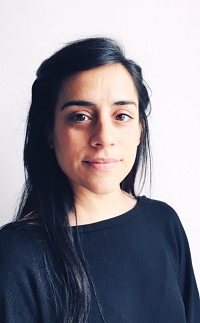
Zahira Aragüete-Toribio holds an MA in Anthropology and Cultural Politics and a PhD in Visual Anthropology from Goldsmiths, University of London. From 2009 to 2013, she worked as a research assistant under the supervision of Dr. Sari Wastell (Goldsmiths, University of London) in the project "Bosnian Bones, Spanish Ghosts: Transitional Justice and the Legal Shaping of Memory after Two Modern Conflicts" funded by the European Research Council (ERC Starting Grant). From 2013 to 2016, she taught as an associate lecturer in anthropology of rights, anthropology and history, anthropology and gender theory, and introduction to social anthropology in the Anthropology Department of the same university. She was a research collaborator of the project "Subtierro: Exhumaciones de fosas comunes y derechos humanos en perspectiva histórica, transnacional y comparada" led by Dr. Francisco Ferrándiz (Spanish National Research Council) from 2016 to 2019. From 2020 to 2023, she is also a member of the follow-up project "Más allá del subtierro: Del giro forense a la necropolítica en las exhumations de fosas comunes de la Guerra Civil (NECROPOL)" led by Dr. Queralt Solé (University of Barcelona) and funded by the Spanish Ministry for Science and Innovation. Since 2021, she participates in co-designing and co-managing the European network "TRACTS: Traces as Research Agenda for Climate Change, Technology Studies, and Social Justice" funded by a research and innovation grant of the European Cooperation in Science and Technology (COST) organization. She has published her work since 2013 (see list of publications).
Her doctoral research explored scientific, historical and social endeavours in connection to the exhumation of human remains from the Spanish Civil War and the postwar period in the southwestern region of Extremadura (Spain). Focusing on notions of evidence production, she studied the role that human remains, documents, war remnants, oral accounts and expertise played in the construction of new histories and sociopolitical claims about past political repression. As a postdoctoral researcher in the project, she continues to focus on the legal, political and scientific treatment of human remains in the production of truth, evidence and knowledge after conflict and the sociocultural legacies of mass crimes in contexts of impunity.